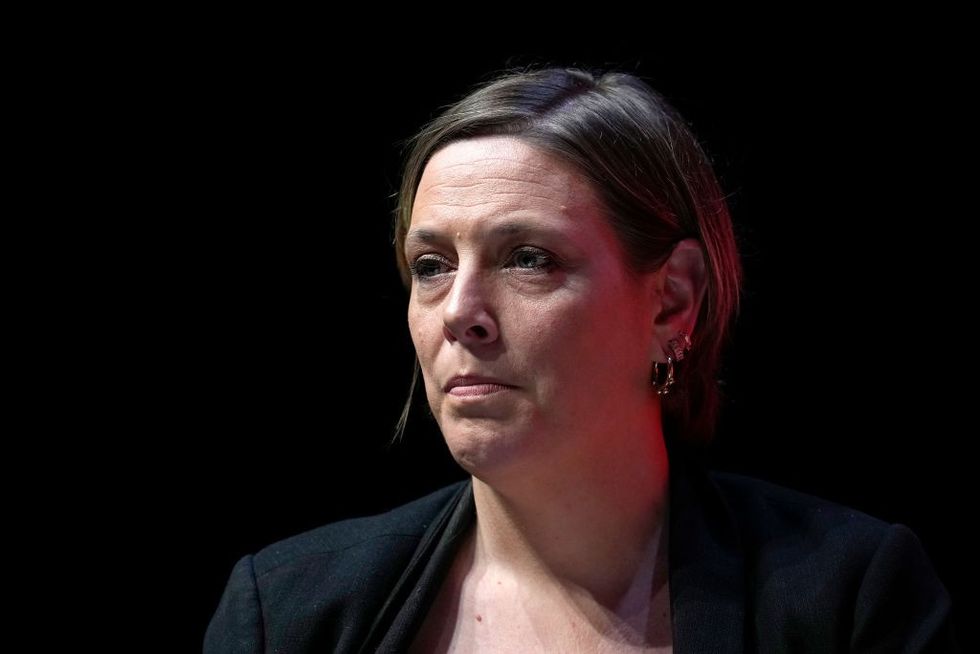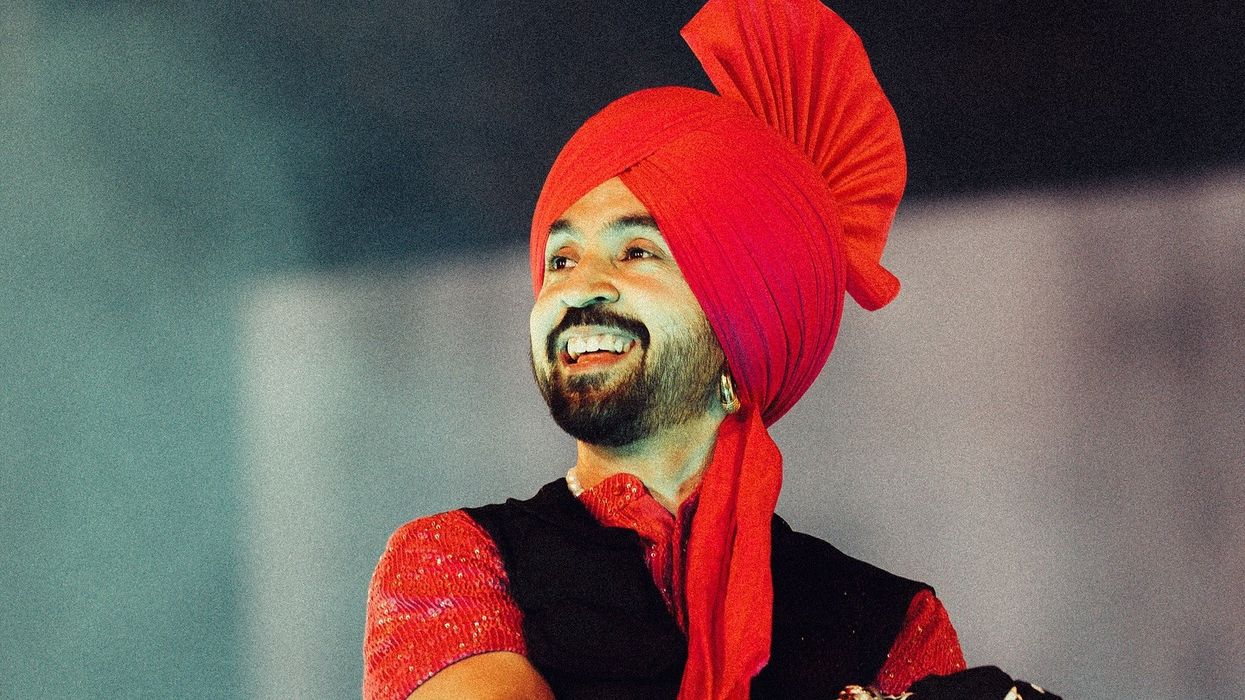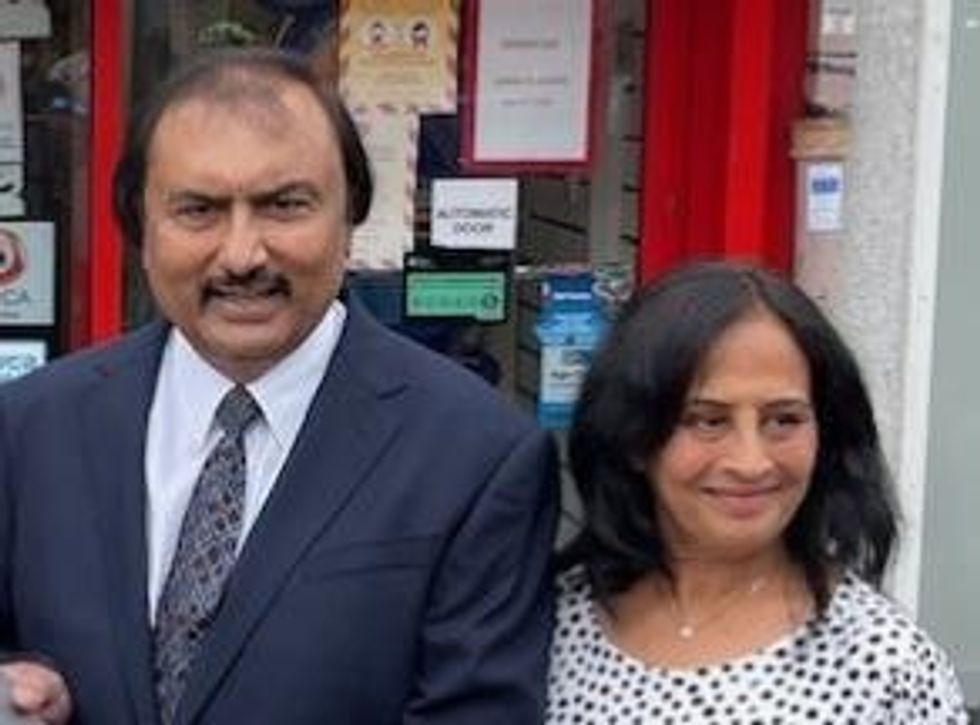BANGLADESH on Tuesday (3) summoned New Delhi’s ambassador after an attack on one of its consulates in India, the latest flare-up in strained ties between the neighbours.
Relations have been frayed by the student-led uprising in August that toppled Bangladesh’s autocratic former leader Sheikh Hasina, who is now in India.
New Delhi has repeatedly demanded protection of Bangladesh’s minority Hindu minority community, which saw reprisal attacks in the chaotic aftermath of Hasina’s ouster because of their perceived support for her government.
Hindu activists on Monday (2) attempted to storm a Bangladeshi consulate during a protest in Agartala, a small Indian city not far from the two countries’ shared border.
India condemned the breach and local police have arrested seven people.
After meeting Bangladesh foreign ministry officials, India’s high commissioner Pranay Verma said his country was committed to engaging with the interim government, which took office after Hasina’s ouster to implement democratic reforms.
“This is a wide-ranging relationship, a multifaceted relationship,” Verma told reporters.
“We remain interested in working with the government of Bangladesh to fulfil our shared aspirations for security and development.”
Public sentiment in the Muslim-majority nation of 170 million continues to be stacked against India, which was Hasina’s main international patron during her iron-fisted, 15-year rule.
Students of Dhaka University – the epicentre of the revolution that led to Hasina’s ouster – on Monday evening staged rallies protesting at the attack on the Bangladeshi consulate.
A small crowd unsuccessfully tried to besiege the Indian High Commission in Dhaka later that night.
At the Dhaka University protests, students said the attack on the consulate in India undermined Bangladesh’s “sovereignty” and “independence”.
“We can clearly see that a hardline Hindu group from India, with Delhi’s provocation, is trying to hurt the sovereignty of Bangladesh,” said 30-year-old Nayeem Ahmad.
The Bangladesh Nationalist Party (BNP) – Hasina’s main opposition during her rule – also held a protest outside its headquarters in the capital.
“The Indians have feigned sorrow, but they failed to ensure security to our mission,” senior BNP leader Ruhul Kabir Rizvi said.
Hasina meanwhile took the opportunity this week to excoriate the interim government that replaced her, headed by Nobel Prize winner Muhammad Yunus, whom she accused of “mass murder”.
Speaking at a virtual rally alongside US-based leaders and activists of her Awami League party, the ousted prime minister said minority communities in the country had come under increasing attack after her departure.
“Hindus, Buddhists, and Christians are being targeted,” she said. “Churches and several temples have been attacked.”
Bangladesh is currently seeking Hasina’s extradition to face trial for a deadly crackdown on the protest movement that ultimately toppled her.
UN peacekeepers call sparks shock
BANGLADESH’S interim government expressed shock on Monday (2) at a politician in India’s call to deploy UN peacekeeping forces in the country to protect Hindus and other minorities from violent attacks.
Chief minister Mamata Banerjee of India’s West Bengal state – which shares close cultural and linguistic ties with Bangladesh – urged New Delhi on Monday to petition the UN to address their concerns.
“They can send the peacekeeping force to Bangladesh and rescue our people,” she said.
Bangladesh’s de facto foreign minister, Touhid Hossain, expressed dismay over what amounted to one of the biggest censures of his country’s leadership by India since Hasina’s ouster.
“I don’t know, I can’t understand why Mamata Banerjee made such a statement. I know her personally, I have visited her home several times,” he said.
Touhid accused the Indian media of spreading disinformation about the status of Hindus in Bangladesh, but offered a more conciliatory note to the neighbouring government.
“Problems can be solved,” he said. “Mutual interests must be preserved, and seeks a friendly relationship with India.”
Touhid, part of a caretaker cabinet tasked with imposing democratic reforms following Hasina’s ouster, said he had also spoken to other foreign diplomats to “dispel misunderstandings over minority issues”.
Hefazat-e-Islam, an association of Islamic seminaries, has led public protests against India and accused New Delhi of spreading hate against Bangladesh.






 Jess Phillips MP (Photo by Christopher Furlong/Getty Images)
Jess Phillips MP (Photo by Christopher Furlong/Getty Images)










 Claire Coutinho
Claire Coutinho
 Hemandra Hindocha and wife Kirti
Hemandra Hindocha and wife Kirti

From desks to dreams: A journey of girls’ empowerment